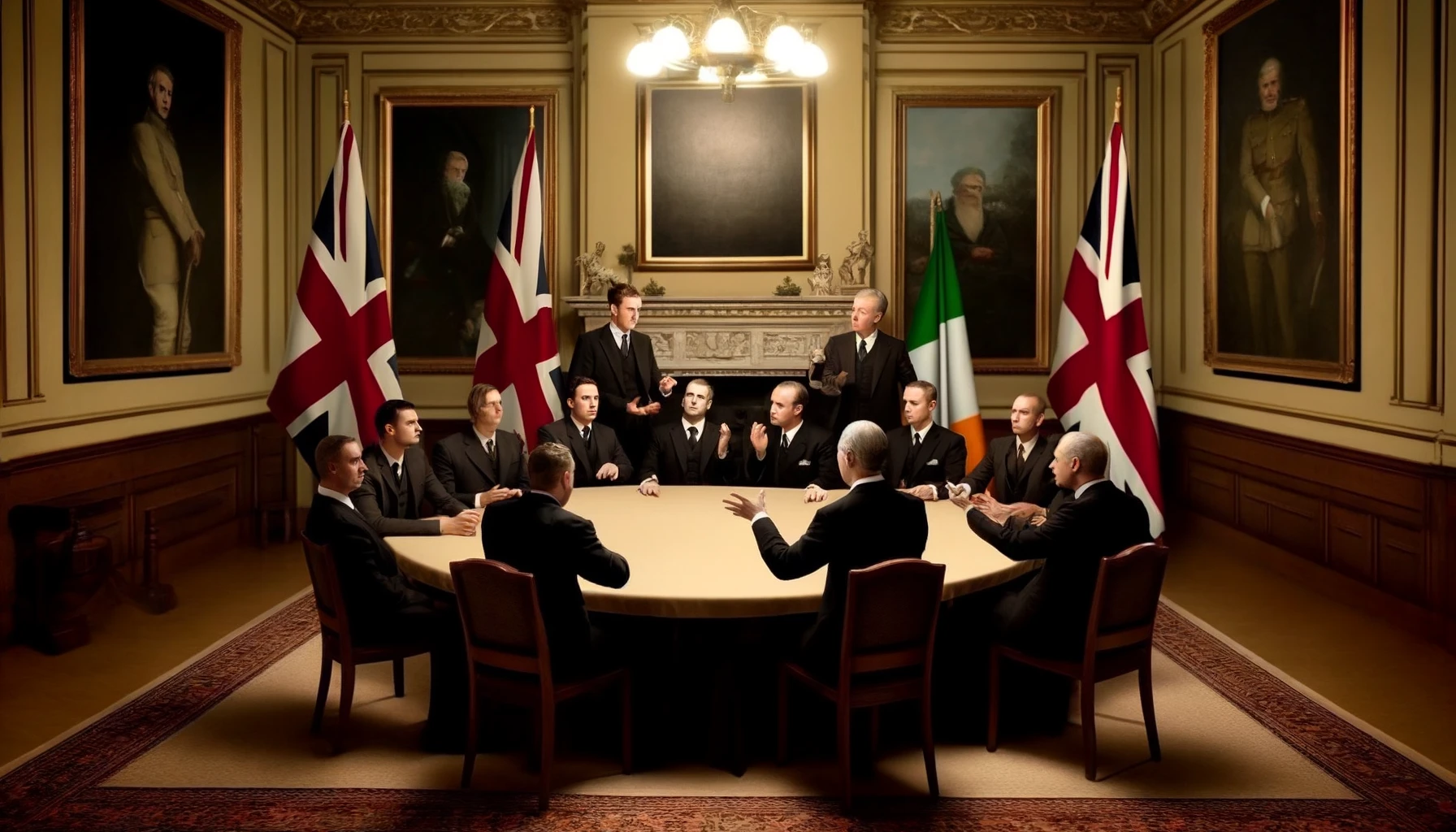In a satirical twist that seems to have leapt straight from the pages of a darkly comedic political thriller, British officials have reportedly approached the Irish Republican Army (IRA) with an unusual proposition: to exaggerate the intensity and destruction of their historical conflict. The odd request, summed up as “Please lie, it’s for a good cause,” is purportedly aimed at retroactively justifying the United Kingdom’s current stance on supporting more extreme measures against terrorism.
“Think of it as adding a bit of flair to history,” suggested a fictional British diplomat, Sir Fabricate O’Whimsy, during clandestine talks that definitely didn’t take place in a dimly lit backroom of a pub long forgotten by time. “If the past were just a tad more… dramatic, our present actions wouldn’t seem quite as severe by comparison.”
The narrative being spun is one where British officials believe that by reimagining the scale of past conflicts—making them appear more catastrophic than they were—current policies and support systems for combating terrorism, particularly in relation to Israel, can be seen in a more favorable light. “It’s about context,” O’Whimsy reportedly added. “A little creative license with history could go a long way in smoothing over our public image.”
Satire aside, the proposition highlights the often absurd lengths to which political entities might go to manipulate perceptions of their actions and policies. Critics in this fictional scenario were quick to lampoon the move, with one satirical commentator noting, “Why stop at the Troubles? Let’s say the Boston Tea Party was actually a full-blown naval battle. It’s all about the narrative, right?”
The IRA’s response to this supposed request was predictably incredulous, with a spokesperson for the organization humorously suggesting, “Next, they’ll be asking us to claim responsibility for the Great Fire of London. For the record, we prefer our history unembellished.”
In a further development of the satire, British schools are rumored to be considering the addition of new history textbooks, tentatively titled “The Troubles: An Explosive History, Now with More Explosions,” aimed at educating future generations on this creatively enhanced version of events.
As this fictional tale of diplomatic audacity circulates, it serves as a poignant reminder of the delicate balance between historical accuracy and the narratives crafted by those in power. While the story itself is a fabrication, the underlying message about the manipulation of historical events for political gain resonates in a world where “alternative facts” increasingly blur the lines between reality and fiction.
In the end, the satirical suggestion that the UK might ask the IRA to lie about the past in order to justify present policies is a sharp commentary on the complexities of reconciling historical truth with contemporary political objectives. As always, the truth proves stranger—and often more humorous—than fiction.

